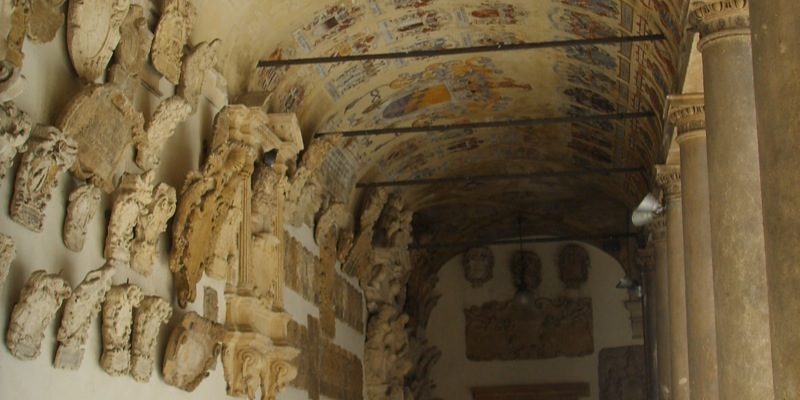The University of Padua gained increasing fame during the Carraresi era, thanks in part to the generous support of the signori. The Carraresi maintained a dose rapport with the professors of the Studium. Notable teachers were often called on to fill roles as Chancellor of State, in the diplomatic corps and guilds, or even as members of the signori household. This occurred for Jacopo Dondi (1293-1359), famous for the construction of the clock installed at the Palace under Ubertino. He came to Padua from Chioggia in 1339 and took the professorship of medicine, philosophy and astrology, which had previously been held by Pietro d'Abano. Giovanni, son of Jacopo Dondi, also taught medicine, and in 1364 he invented the astrarium, an astronomical clock that could mechanically reproduce the movement of the planets. Ubertino, during his government, sent 12 medical students to Paris to better their education. At least two of these would later teach at Padua. Outstanding figures among the jurists included Giovanni di Conversino da Ravenna, the jurist-literati Pier Paolo Vergerio and Vittorino da Feltre, and the renowned canonist Francesco Zabarella. Zabarella was a strong advocate of the separation of the universities of the Artists and the Jurists, which was begun by Francesco I da Carrara and completed under Francesco II, in 1399. The signoria also provided an important intervention when Ubertino, brother of Francesco I, mediated with Pope Urban V for permission to institute a faculty of theology, which was a privilege that only Bologna and Paris had held. A number of colleges within the university played the fundamental role of welcoming the students, including those who came from well beyond Padua. Collegio Pratense, situated beside the Duomo was one of the most famous colleges. In 1390 Federico Novello authorized all citizens to rent lodgings to students.
Are you a local? What do you think about Bo Palace (University)?
Login to suggest it!


